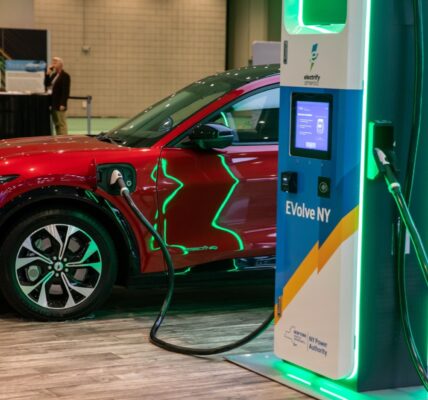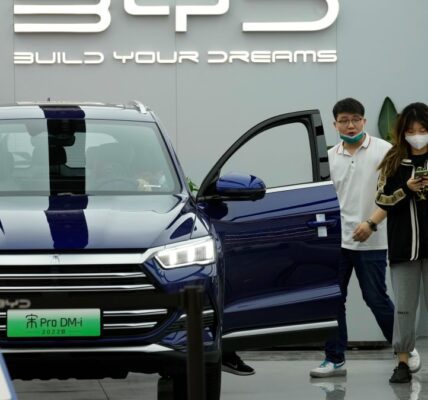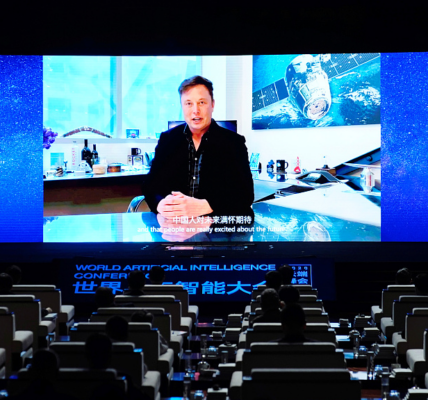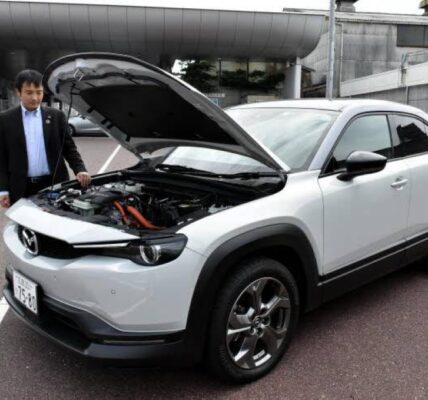German auto giant Volkswagen AG’s $700 million investment in Xpeng Inc. is a vote of confidence in the electric-vehicle upstart and the latest sign of how rapidly China is starting to dominate the global transition to clean vehicles.
The deal gives VW a 4.99% stake in Xpeng and an observer board seat. The pair plan at least two new VW-badged battery-powered models for the Chinese market, with the first due to arrive in 2026. VW is fighting to halt a slide in sales in its most important market, where Tesla Inc. and local champion BYD Co. have raced ahead.
For nine-year-old Xpeng, the tie-up gives it prestige backing from one of the world’s biggest automakers, and may soothe investor concerns after a run of disappointing earnings and sales results. It will also gain a “significant” source of recurring revenue that could help it reach profitability sooner than expected.
Xpeng shares surged as much as 33% in Hong Kong trading early Wednesday, mirroring a 27% jump in the New York-traded stock.
“The tie-up helps confer confidence in and reflects the value of Xpeng’s EV platform and software technologies, and should put away any ‘going concern risk’ that some investors have for the company,” Sanford C. Bernstein analysts led by Eunice Lee wrote in a note.
Together with VW’s Audi division partnering with SAIC Motor Corp. to develop electric vehicles the “deal may provide a crucial stop-gap to address VW’s falling market share in China,” the Bernstein analysts said.
Xpeng will also be able to monetize its technology, Gu said in the Bloomberg TV interview. That could speed the path to profitability, after the automaker earlier this year pushed back its profit goal until 2025.
“This deal provides us an opportunity to have significant recurring revenue coming from this collaboration,” he said. “With growth of our own brand sales as well as additional revenue from tech collaboration we think we can actually achieve profitability sooner than originally expected.”
The VW and Audi deals also mark a turning point in China’s automotive industry from learning from foreign manufacturers to innovating its own technology.
It could be “just the beginning of cooperation between Western carmakers and China EV startups,” said Wang Hanyang, an auto analyst at Shanghai-based 86Research Ltd.
Future collaborations “will not be limited to the Chinese market but will extend to the global market, with the output of China’s advanced EV technology through joint ventures, collaborative research, and other means,” he said.
The move is also part of a VW’s push “to prevent long-term market share decline in China,” Citigroup Inc. analysts wrote in a note. The German company’s share of China’s rapidly growing EV market shrank to 2.4% in the first half of 2023 from 3.5% last year, they said.
“Our international and global aspiration is unchanged,” Gu said. “With the strong partnership with Volkswagen obviously we need to make sure this technical collaboration from a strategic perspective is going well. In the long run, we believe with the additional help and support of our partners we can develop international markets more assertively.”








